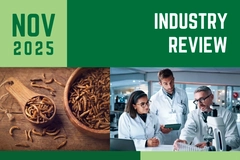Xampla and Quadram Institute secure grant to advance probiotic microencapsulation
Materials innovation company Xampla and the Quadram Institute in the UK have secured grant funding to advance Xampla’s plant-based microencapsulation technology, which allows food and beverage formulators to incorporate stable probiotics into a wider variety of fortified products.
The system’s micro plant polymer shells encase probiotics until they are digested, which extends their shelf life in refrigerated and ambient formats. The system ensures enteric release in the small intestine, maximizing health benefits.
The grant is funded by Innovate UK and the Biotechnology and Biological Sciences Research Council as part of the Diet and Health Innovation competition.
The grant will see Xampla and the Quadram Institute, a food and health research center, collaborate on developing cutting-edge probiotic microcapsules aimed at improving gut health.

Based in the Norwich Research Park, the Quadram Institute is home to world-leading researchers, academics and National Health Service clinicians innovating in gut health, microbiology and food.
“Our nutrient microencapsulation technology has already demonstrated remarkable success in encapsulating sensitive compounds such as vitamins,” says Alexandra French, CEO of Xampla.
“With this grant funding, we aim to advance the probiotic market by ensuring that vital ingredients for gut health can be seamlessly integrated into everyday products.”
Fortifying probiotics against stressors
Probiotics are highly sensitive to factors such as oxygen exposure, pH imbalance and pasteurization, making it challenging to maintain their viability from production through shelf life and digestion.
Traditionally, the industry has been limited to the products it can add probiotics to and the strains it can use. Xampla’s microencapsulation technology protects probiotics throughout manufacturing, transit and storage, ensuring they reach consumers with full efficacy.
Xampla’s nutrient microcapsules are insoluble but digestible. When vitamins and nutrients are encapsulated in the plant polymer shell, they remain intact until digestion. This unique enteric release profile provides “superior bioavailability” of the nutrient by releasing in the upper gut. This releases the cargo at the point where it is absorbed, resulting in “optimum impact.”
According to the company, this microencapsulation technology has been proven to protect vitamin D in fortified drinks for soft drinks giant Britvic. This technology ensures product stability even under challenging conditions, such as sunlight exposure.
The global probiotics market is expected to see rapid growth in the coming years, according to the partners, projected to increase from £77 billion (US$99.3 billion) in 2024 to £170 billion (US$219.2 billion) in 2030.
“This surge in demand underscores the importance of innovative solutions, which address key challenges in probiotic delivery and offer new opportunities for product development and consumer health benefits,” they maintain.
Academia collaboration
As a spin-out of Cambridge University backed by 15 years of research at the institution, Xampla pioneered the development of the world’s first natural plant polymer materials for commercial applications.
Xampla brought its microencapsulation to market in 2022, marketing its product toward brands looking to infuse vitamins into beverages packaged in clear-plastic containers, without having to worry about the damaging effects of sunlight or degradation during transportation and storage.
Professor Arjan Narbad and his translational microbiome research group at the Quadram Institute will now bring their expertise in studying the microbial ecology of the gut and its microbiome to the project.
Using state-of-the-art facilities, they will model and measure how microencapsulated probiotics in various consumer products impact the microbiome.
“We are thrilled to collaborate with Xampla to broaden its microencapsulation technology specifically for probiotics,” says Dr. Roberto Zanchi, head of Business Development and Commercialisation at the Quadram Institute.
“This partnership will drive forward advancements in improving shelf-life and viability of probiotics, enhancing their efficacy and ultimately improving health outcomes for consumers.”
In August, Xampla entered a collaboration with F&B distributor Lehmann Ingredients to supply its nutrient microencapsulation technology throughout supply chains in the UK.















